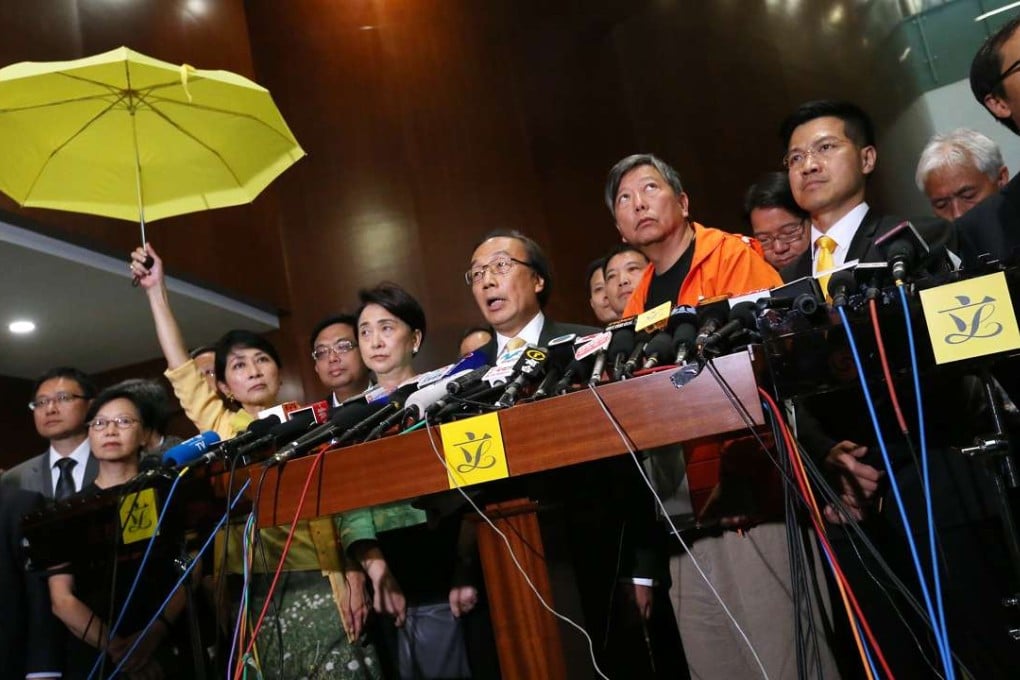Hong Kong must find the courage to restart electoral reform dialogue
Tik Chi-Yuen says a year after legislators rejected the government’s proposal, the opposing camps must come together to seek a breakthrough – for the sake of the city’s democratic development

Calls to relaunch political reform process are fraught with danger
The National People’s Congress, the Hong Kong government, and Legco are required to advocate for democratic development under the principle of “one country, two systems”. Their obligations are enshrined in the Basic Law, which gives the city a solemn undertaking that the chief executive and lawmakers will ultimately be elected by universal suffrage.
Though criticised by Western-style democrats, the pioneering “one country’s two systems” model, which was tailored for Hong Kong, is still reliable and dynamic.
Democracy in Hong Kong must be advanced in stages
When people are empowered to elect their official leader, their government must be open-minded and listen to the views of its citizens. When the chief executive is elected by the general public via universal suffrage, the government has to be people-oriented. This has been the long-term goal of pan-democrats. Any deviation from this ideal would result in dismissal by some hardliners in the camp. That is why the pan-democrats slammed the government’s reform package as “substandard” and voted against it in 2015.

Hong Kong pan-democrats hope to press top Beijing official on missing booksellers, CY and political reform
Unfortunately, their uncompromising attitude has gone to the extreme, giving no opportunity for the government to settle any differences. Since the 2015 failure, Hong Kong’s constitutional development has been delayed further. If this situation persists, there will be little opportunity for political reform, which would result in a lack of democratic development for Hong Kong.
If nothing changes, the endless fights and bickering will continue
